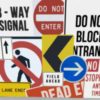Meaning is often underplayed in the world, even among seekers. People enjoy freedom or their idea of freedom, but the meaning of freedom is lost. They speak of no barriers, but freedom has meaning in the context of barriers. Seekers seek to transcend, but even ‘transcend’ has meaning in the context of what you feel you are growing beyond. We seek meaning or feel we do, but it seems the majority of what we seek is not meaning but validation for meanings we adopted. In seeking validation all too often meaning is lost, and what can be validated in one turn can loose any virtue in the next as beliefs and trends wend aimlessly.
Today psychologists say that a widely held belief is not delusion. There is a reason for that. We function based on a consensus of meaning and agreement that if I say a word, or even if I emote in a specific way, that it has a recognizable meaning. This agreement goes unspoken, often unthought about and the assumption of agreement often leads to horrible misunderstandings. When the agreement isn’t there and we discover it isn’t there, rather than seeking what agreement can exist we instead feel invalidated and that makes us very defensive. We defend ourselves from an opportunity to gain what we say we want. Things have the meaning we assign them or so many think. In fact, it isn’t really that subjective even on a very primitive level. Friend or foe is a meaning even animals check for, and they do not choose to look for it.
We don’t seek change of our nature. Left to our own devices we don’t actually want things to broaden. We screen things. This served a survival purpose. An animal can’t afford to process too many things. It prevents them from success at survival, but we as humans endeavour to see more. Deeper. In art and science, in relating to each other, we consciously seek meaning but we seek it in a way that denies where we start from.
It’s said that your focus determines your reality, but also that we see the world through a blurry lens. The reason for the distortion is not the defectiveness of the minds tendency to screen. It’s that our society, our culture, our heritage, does not arm us to see that we do screen. There is no real tradition of dealing with the screen. Many try brute force and just trying to be rid of the screen which amounts to ignoring it. In my experience ignoring doesn’t rid you of anything. Anyone have any luck ridding themselves of the screen?
Ignoring it seems to make it build into something bigger. It builds. Your ideas build and go unconsidered. Would you control a boat well if you insisted it was a car?
Things seen in the screen are larger than they appear and smaller. It is like we live in a fun house, but you don’t find your way through a funhouse by ignoring the mirrors. You have to see that the mirrors are mirrors or you can bruise yourself pretty bad.
You can be rid of your screens. When in crisis you are often forced to see your screens for what they are, and that creates fear. When you understand something you own, you use it right. And when you use it right, rather than being a barrier you are free of it. At first, learning to drive a car is a big barrier and you might even see it as bigger than the benefit. Some people screen it that way so strongly that they never learn to drive a car, and are never freed of their decision either. True awareness is the real freedom, not denial. The person who learns to drive the car can choose one way or another. Freely. The person who chooses not to learn, chooses to lose choice. In rejecting the barrier, in rejecting the thing they see as other beyond them, they volunteer to be encased in it. When you believe in barriers and see that meaning is all relative (which means that nothing has any context), you place yourself in a very tight cell, do you not? To be encased is a false sense of safety.
Your thoughts are welcome. Be well friends.
Travis Saunders
Dragon Intuitive
~science,mysticism,spirituality~



Leave a Reply